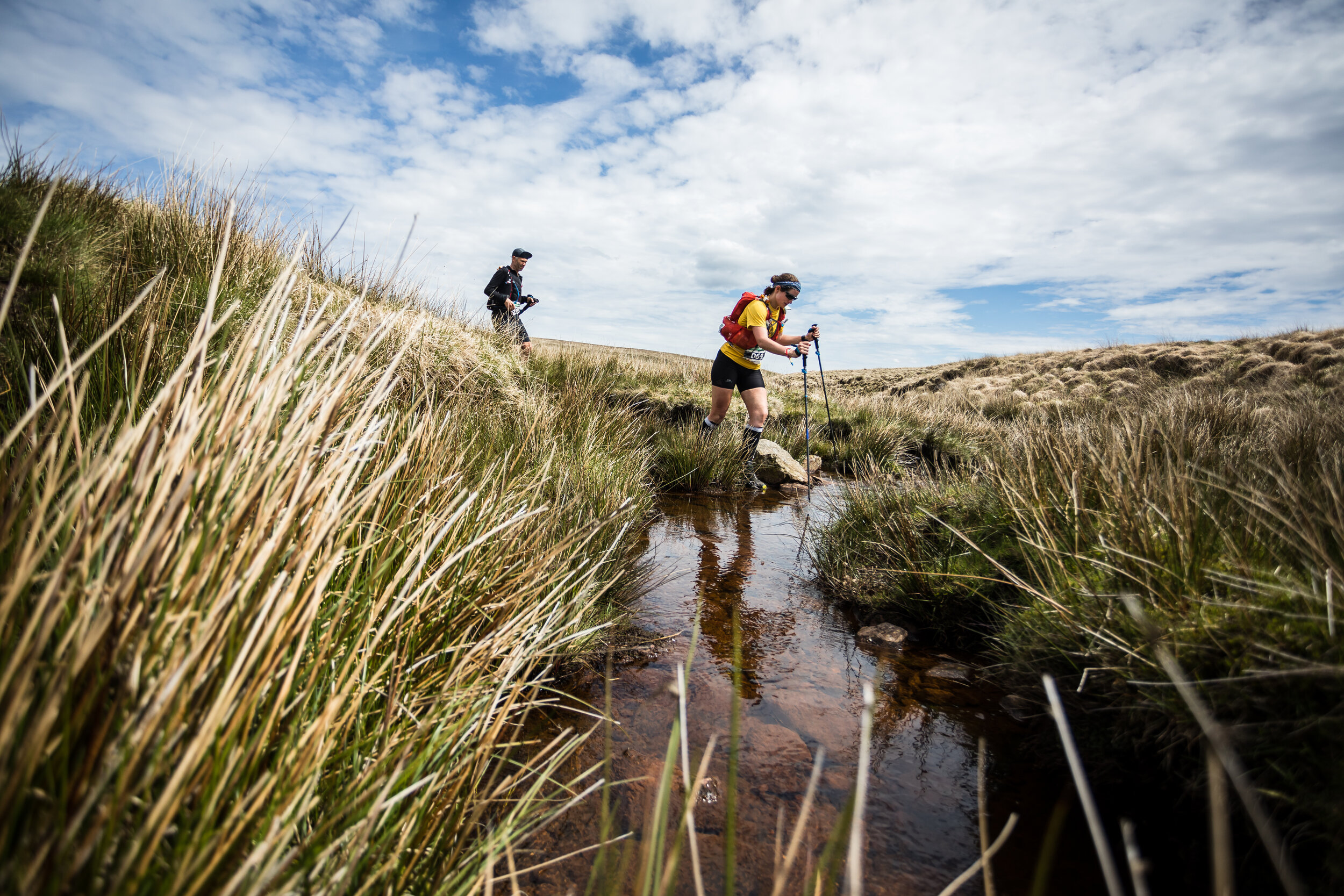Ecology
WHAT WE ALREADY DO
Use the services of an ecologist to conduct an ecological risk assessment for multi-day events, both on the race routes and at Event Centres and Overnight Camps.
Liaise with statutory agencies like Nature Scotland, Natural England and Natural Resources Wales throughout the course planning process.
Document an ecological assessment in the event safety management plan for every event.
Publish ecological briefing notes on participant's event maps (for those events that have maps) to advise them about the special features of the event area and behaviours they can undertake to reduce their impact.
Perform pre- and post-event trampling assessments where requested by agencies or landowners and take action as necessary.
Have ecological contingency planning with our Pollution Incident Response Plan.
WHAT WE ARE PLEDGING TO DO
Develop partnerships with environmental organisations such as local wildlife trusts.

Above: The Dragon's Back Race® passes through the Elan Valley - a site of considerable ecological interest and biodiversity value ©No Limits Photography
Our events take place within some of Britain’s finest upland areas that often contain features of considerable ecological interest and biodiversity value. In many cases this interest is reflected in formal designations that recognise habitats, vegetation, and species of flora and fauna of national and international nature conservation importance. We provide participants with fantastic opportunities to access these areas, but the passage of participants has the potential for adverse effects on ecology and biodiversity, principally through erosion of soil and vegetation and disturbance of wildlife. For most locations within an event area, these adverse effects will be short-lived and of no significance for maintaining the conservation status of the area.
However, there is the potential for these effects to be of greater significance by causing more significant disturbance to features of special ecological interest. There is also the potential for persistent effects of disturbance through erosion of soil and vegetation to detract from the wild land character and quality of the event areas. When these issues are considered, it is important to ensure that Ourea Event’s planning and course setting demonstrates a high level of accountability to biodiversity conservation objectives.
We have had a detailed Environment and Ecology policy since 2015. Our policy guides an approach to event planning that identifies ecological sensitivity assessment as a specific issue, clearly identifying stages in the event planning process where ecological considerations may influence planning decisions. The aim of this policy is to describe a process that reassures statutory agencies, other interested parties and participants that reasonable action has been taken to avoid the risk of significant adverse ecological effects within an event area. This approach requires that a qualified ecologist is involved throughout the process to provide further reassurance that a suitably informed interpretation of ecological sensitivity issues has underpinned event planning and course setting.
Did you know?
This area of focus is part of our progression towards goals 7 and 10 of the Outdoor Friendly Pledge

